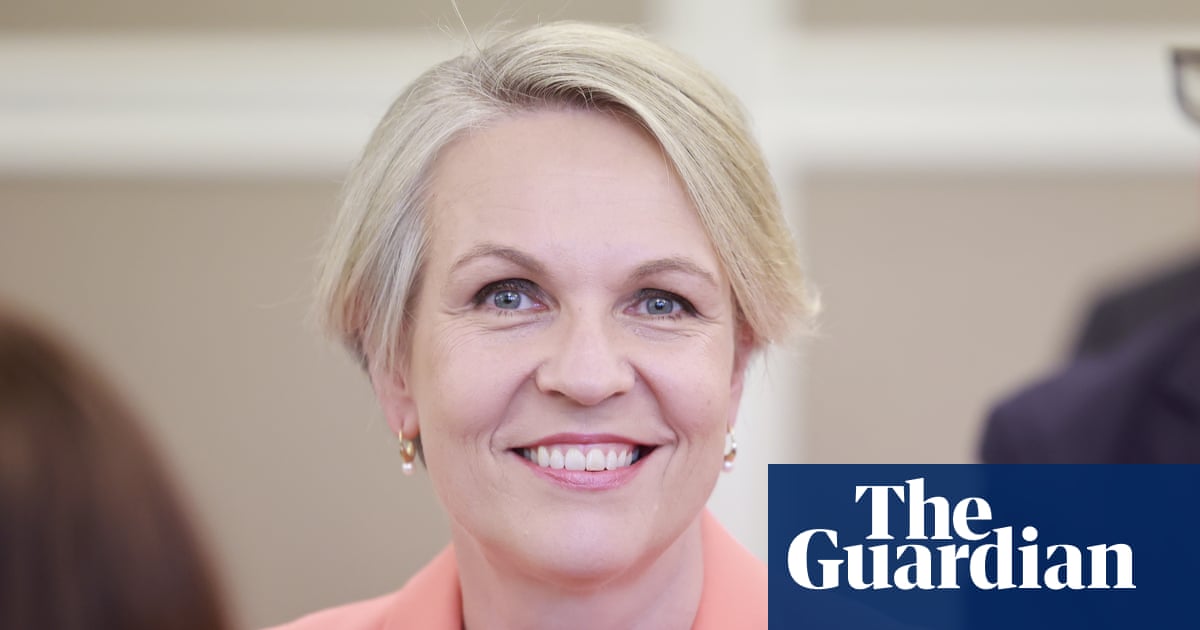Tanya Plibersek has been named the minister for social services as the prime minister,Anthony Albanese, revealed his new frontbench after Labor’s emphatic election victory.
The biggest changes in the new cabinet include Michelle Rowland, as the new attorney-general; health minister Mark Butler getting the NDIS added to his portfolio; Amanda Rishworth being named the new employment and workplace relations minister; Anika Wells being promoted to the communications portfolio; and Murray Watt taking on the environment portfolio.
Anne Aly and Tim Ayres, two rising stars of the left, also enter cabinet in key portfolios - Ayres taking Ed Husic’s portfolio of industry, and Aly taking small business as well as multicultural affairs.
In a Canberra press conference, Albanese said Plibersek was “very positive” about her move from environment. Watt, the Queensland left senator, will now have charge of passing Labor’s nature positive changes and plans for an environmental protection agency, which were stalled under Plibersek afterAlbanese vetoed a deal she had negotiatedin the Senate.
In addition to cabinet and senior ministry changes, Albanese has also announced a number of new assistant ministry and envoy roles.
Dan Repacholi, the re-elected Hunter MP, has been named to an envoy role responsible for men’s health after starting some national conversations on that issue in his first term; Josh Burns, the well regarded third-termer, will be special envoy for social housing and homelessness, issues he has strongly advocated for in his Melbourne seat.
Rebecca White, the former Tasmanian Labor leader, comes straight into the ministry as the assistant for health, Indigenous health and women. Peter Khalil is the new assistant defence minister, while Queenslander Nita Green becomes the assistant minister for tourism, the Pacific and Northern Australia.
Andrew Charlton, Kevin Rudd’s former economic adviser, is the new cabinet secretary and assistant minister for science and technology.
Albanese’s new cabinet:
Richard Marles –deputy prime minister, minister for defence
Penny Wong –minister for foreign affairs
Jim Chalmers –treasurer
Katy Gallagher– minister for finance, minister for the public service, minister for women, minister for government services
Don Farrell –minister for trade and tourism, special minister of state
Tony Burke– minister for home affairs, minister for immigration and citizenship, minister for cybersecurity, minister for the arts
Mark Butler– minister for health and ageing, minister for disability and the national disability insurance scheme
Chris Bowen – minister for climate change and energy
Catherine King – minister for infrastructure, transport, regional development and local government
Amanda Rishworth– minister for employment and workplace relations.
Jason Clare– minister for education
Michelle Rowland- attorney general.
Tanya Plibersek –minister for social services.
Julie Collins– minister for agriculture, fisheries and forestry
Clare O’Neil– minister for housing, minister for homelessness and minister for cities
Madeleine King– minister for resources, minister for northern Australia
Murray Watt– minister for the environment and water
Malarndirri McCarthy– minister for Indigenous Australians
Anika Wells– minister for communications, minister for sport
Pat Conroy– minister for defence industry, minister for Pacific Island affairs
Anne Aly– minister for small business, minister for international development, minister for multicultural affairs
Tim Ayres– minister for industry and innovation, minister for science
